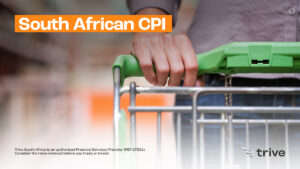
In the annals of corporate collapses, Steinhoff’s descent from a prominent retail giant to the brink of oblivion stands as a chilling cautionary tale. The once-mighty retailer finds itself cornered, with its back against the wall and no room for manoeuvring. Steinhoff’s imminent delisting from the Johannesburg Stock Exchange (JSE) and the Frankfurt Stock Exchange marks the end of an era as ownership shifts from shareholders to the hands of relentless creditors, predominantly comprised of hedge funds.
A staggering burden of €10.2 billion, approximately R200 billion, looms over Steinhoff, an astronomical sum the beleaguered company is simply incapable of repaying. To put this monumental debt burden into perspective, it surpasses the company’s value on the JSE by a staggering multiple of 400. Once revered and sought-after, the shares have plummeted into the abyss, leaving disheartened shareholders grasping at the remnants of their shattered investments. The latest crash sent the company’s share price hurtling down to historically low levels.
As the noose tightened around Steinhoff’s neck, it became increasingly apparent that the company’s survival was an unattainable fantasy. The realization that its mountainous debt would forever remain a looming spectre led Steinhoff to plea to the Amsterdam court for approval of a radical restructuring plan – a last-ditch effort to salvage what remains and end the Steinhoff we once knew.
The alternative to the restructuring plan is a harrowing prospect. In a race against time, Steinhoff would be forced to shutter its operations, igniting a fire sale of its assets through a merciless liquidation process. However, the Amsterdam court, acting as the stage for Steinhoff’s registration, has cleared a path for the beleaguered retailer to evade this ominous fate. By greenlighting the restructuring plan, the court has opened the doors for implementation before the end of June, sparing Steinhoff from the treacherous abyss of liquidation.
Yet, the price of survival is a bitter pill for Steinhoff’s stakeholders. Delisting from the JSE and the Frankfurt Stock Exchange will be accompanied by a seismic shift in ownership – away from shareholders and towards the rapacious creditors who hold the company’s fate in their clutches. In a calculated move, Steinhoff will be transferred into a trust, with these creditors, predominantly hedge funds, seizing control of approximately 80% of the company’s shares. In return for their temporary retreat, these creditors will be granted a respite from debt repayment for a gruelling three-year period, leaving them empty-handed until at least 2026.
For the shareholders who once nurtured dreams of reaping the rewards of their investments, the future appears ominously bleak. According to the restructuring plan, they will be left clutching a mere 20% of the remnants of Steinhoff, an uncertain and paltry fraction. Regrettably, they find themselves relegated to the back of the line, waiting to receive any meagre amounts they are owed – if they receive anything. The spectre of walking away with nothing looms ominously, casting a dark shadow over shareholders’ shattered hopes and dreams.
Disclaimer: Trive South Africa (Pty) Ltd, Registration number 2005/011130/07, and an Authorised Financial Services Provider in terms of the Financial Advisory and Intermediary Services Act 2002 (FSP No. 27231). Any analysis/data/opinion contained herein are for informational purposes only and should not be considered advice or a recommendation to invest in any security. The content herein was created using proprietary strategies based on parameters that may include price, time, economic events, liquidity, risk, and macro and cyclical analysis. Securities involve a degree of risk and are volatile instruments. Market and economic conditions are subject to sudden change which may have a material impact on the outcome of financial instruments and may not be suitable for all investors. When trading or investing in securities or alternative products, the value of the product can increase or decrease meaning your investment can increase or decrease in value. Past performance is not an indication of future performance. Trive South Africa (Pty) Ltd, and its employees assume no liability for any loss or damage (direct, indirect, consequential, or inconsequential) that may be suffered from using or relying on the information contained herein. Please consider the risks involved before you trade or invest.




